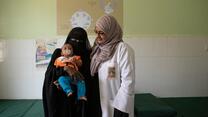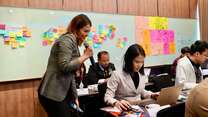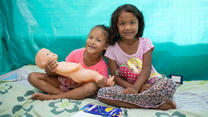This study draws on three case countries – Nepal, Sierra Leone and South Sudan – to address gaps in evidence and understanding on violence against women and girls (VAWG) during post-conflict transition. It highlights the potential for state-building and peacebuilding processes to address VAWG, and the effect this has in advancing sustainable peace.
This is the first time that a systematic approach has been taken to bridge the gap between VAWG and post-conflict state-building / peace-building policies and processes.
The study was led by the George Washington Institute (GWI), CARE International UK and International Rescue Committee (IRC), and was conducted as part of the What Works to Prevent VAWG in Conflict and Humanitarian Crises programme, funded by UK aid.
Click here to read the accompanying policy brief, which summarises findings from the study for policy makers.
Click here to read the analytical framework brief, which is a practical tool that can be used by policy makers as a guide to designing fair, inclusive, and sustainable state-building and peace-building processes that include meaningful engagement with the issue of violence and women and girls.


